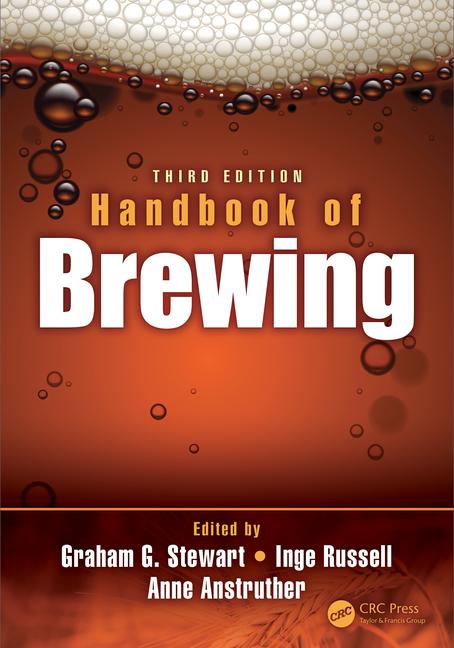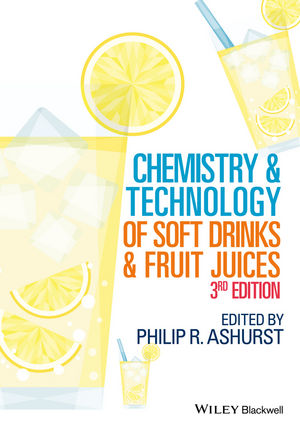Best New Products Of 2005
Beverage Industry Covered Many Innovative new Products This Year, but None More Interesting Than the Ones Featured Here. in Addition to Hitting Store Shelves in 2005, the Beverages Selected This Year set Trends, Advanced or Created new Beverage Categories, or Simply Captured Consumers’ Attention and Increased Sales. the Impact the Drink had or Will Have on the Industry Also Factors Into the Selection of These Products. This Year’s Best new Products are Divided Into Categories Based on Trends we Covered During 2005, Including Imported Light Beers, Re-introduced Brands, Line Extensions, Dairy-based Drinks, and Sports and Energy Drinks.
Imported lights
Setting the stage for what is to come in 2006 for the
import beer market, Beck’s Premier Light hit the million-case mark
this month, following its debut in March. Even without having full national distribution, Beck’s Premier Light
exceeded InBev USA’s expectations, and is up 143 percent, according
to IRI data as of Oct. 2, 2005.
This summer, Heineken USA also released Heineken
Premium Light Lager in four select markets. The national launch is planned
for the spring of 2006. The introduction of the light lager is consistent
with Heineken’s strategy to expand its product portfolio and gain
more share in the premium import segment of the U.S. beer market, the
company says. The beer combines a light taste with subtle flavor cues of
regular Heineken. Heineken Premium Light Lager has 99 calories and is
packaged in a new sleekly designed 12-ounce bottle.
“We believe that consumers have been frustrated
by the lack of premium choices within the light beer category,” said
Andy Glaser, brand director, Heineken USA, in a press release.
“Simply put, consumers should not have to sacrifice the quality,
taste and cache of a premium brand when selecting a light beer.”
United States Beverage also introduced a premium light
with Dutch brewer Grolsch’s Light Lager in six markets. The
brewer’s first product in the light beer category, Grolsch Light is
described as cool and crisp, with 107 calories. The company says the
product is brewed to deliver more taste than current European light beers,
and retains the character and quality of the Grolsch brewing process.
“Notice the brand is not Grolsch Light, but rather Grolsch Light
Lager, meaning that it offers authentic lager taste with the increased
drinkability of a light beer,” says John Chappell, senior vice
president of marketing for United States Beverage.
One more time
Pepsi-Cola North America’s Mountain Dew Pitch
Black II, Coca-Cola North America’s Fresca and Wal-Mart Stores
Inc.’s Grapette and Orangette made this year’s list of new
products that aren’t exactly new, but renewed. Pepsi knows how to
capitalize on the Mountain Dew brand name with Mountain Dew LiveWire,
launching in 2003 and then releasing Mountain Dew Pitch Black in 2004, both
for a limited time. This year, Mountain Dew Pitch Black II appeared for a
10-week period through the fall. The product is Mountain Dew with a blast
of black grape and a cool metallic silver label. Pitch Black II is similar
to last year’s Pitch Black, but this time the product has a sour
bite.
“Consumers loved Mountain Dew Pitch Black and
they wanted us to bring it back, but with something new,” said
Pepsi-Cola North America in a press release. “Sour flavors are big
right now with teens and young adults, so we added a sour bite to Mountain
Dew Pitch Black II.”
The zero-calorie Fresca was already popular with
weight-watchers like Oprah, but Coca-Cola decided to make over the brand,
launched in September 2005 as part of its “100 Days of Diets”
strategy, which included the introduction of Diet Coke sweetened with
Splenda and Coca-Cola Zero. Fresca now has a contemporary look, including a
new logo and new packaging graphics. Two new flavors — Sparkling
Peach Citrus Fresca and Sparkling Black Cherry Citrus Fresca — were
also introduced as zero-calorie line extensions to the brand. The sparkling
citrus flavor of the original Fresca went unchanged. “We believe
Fresca’s new look and expanded flavor
offerings will appeal to folks who are looking for a unique taste beyond
the ordinary,” says Alison Lewis, vice president, Sprite and Flavors,
Coca-Cola North America.
And the third popular brand to revisit the new product
category is Grapette and Orangette soda. Wal-Mart re-introduced the brand
as Sam’s Choice Grapette and Orangette, hoping to appeal to Baby
Boomers. As a result of the Grapette Co. being sold through a series of
acquisitions, the brand that has been around since the 1940s essentially
vanished from the U.S. market. Now with U.S. distribution exclusively
through Wal-Mart stores, the brand will be available in cans and 2-liter
bottles.
Smooth operators
This year was a good year for most refrigerated yogurt
drinks, which enjoyed a near 20 percent increase in sales, a value of more
than $397 million, according to Information Resources Inc. Milk and yogurt
are undeniably healthy and nutritious, but one of the biggest struggles is
creating a desirable flavor profile. On the top of Beverage Industry’s list of dairy
products are Stonyfield Farm Light Smoothie and Yoplait Go-Gurt Smoothies.
Stonyfield Farm, Londonderry, N.H., introduced its fat-free Light Smoothie,
which achieves sugar and calorie reduction using erythritol, an
all-natural, low-glycemic-index sweetener found in fruits such as grapes
and melon. The Light Smoothie, available in Wild Berry, Strawberry and
Peach flavors, contains 25 percent of the recommended daily intake of
calcium, and each 10-ounce smoothie contains 9 grams of protein and 130
calories. Made with organic nonfat milk, 70 percent of the ingredients used
to make Light Smoothies are certified organic, and the products are also
free of starches, gelatins, preservatives, and artificial colors and
flavors. Just like Stonyfield’s other yogurt products, Light
Smoothies contain six live active cultures which boost the body’s
immune system, as well as inulin, a natural dietary fiber that boosts
calcium absorption.
Appealing to a different demographic, Yoplait Go-Gurt
Smoothies from General Mills provide parents a fun way to give their kids
the benefits of yogurt in a beverage snack form. An “excellent source
of calcium,” the smoothies have less fat
per ounce than comparable products on the market, the company says. Go-Gurt
Smoothies are available in Strawberry Splash, Wild Berry and Paradise Punch
in a pack of four 5-ounce bottles.
Mixing it up
Players in the already popular spirits category found a way to make their products even easier for
consumers to drink. Diageo launched Smirnoff Signatures, a line of prepared
vodka-based cocktails. Available in Screwdriver, which is a blend of vodka,
orange and tropical fruit flavors; and Cape Codder, which is a
cranberry-vodka blend, the new ready-made drinks are sold in 750-ml. and
1.75-liter bottles, containing enough for six and 14 cocktail drinks,
respectively.
Additionally, Diageo made having a Margarita even
easier with the release of Authentic Cuervo Margarita Minis, the first
premium prepared cocktail that offers the Margarita experience in a
convenient and portable package. The ready-to-serve Margarita is available
in four-packs of 200-ml. single-serve glass
bottles. The Classic Lime-flavored Margarita Minis can be served chilled,
straight from the bottle or poured over ice. “Whether you’re
going to the park, the beach or a barbecue, the convenience of the Minis
lets you enjoy a great tasting Cuervo Margarita almost anywhere,”
says Bertha Gonzalez, commercial director, North America, Jose Cuervo
International, in a press release.
Offering a wider variety, Urban Brands and Spirits LLC
released Party a Go-Go, a line of premium, pre-mixed bag-in-box spirits.
The bag-in-box package with an easy-to-pour spout ensures long-lasting
freshness with refrigeration of the products after opening. Seven flavors
— Appletini, Cosmopolitan, Lemon Drop, Chocolate, Blue Passion
(Fruit), Classic Lime Margarita and Long Island Iced Tea — are
available in 1.75-liter boxes.
Hybrid hype
Again Pepsi-Cola North America’s Mountain Dew
brand makes the top new products list with the launch of MDX. With MDX as
one of the first beverages that is bridging the gap between energy and soft
drinks, it appears that the new category of energy sodas will be full of
new launches in 2006. Coca-Cola North America announced it will launch
hybrid drinks such as Advance by Powerade, Tab Energy and Full Throttle
Fury all next year.
Released in November, MDX features the familiar citrus
flavor of Mountain Dew, but includes ginseng, guarana, taurine and
D-ribose, helping to provide a higher level of energy than regular soda.
The launch of MDX also marks the debut of a new single-serve 14-ounce PET
bottle. The easy-to-grip bottle is clear, and highlights the neon green
color of the beverage. The new item is designed for “the consumer who
is looking for a boost of energy but refuses to sacrifice taste and
refreshment,” says Pepsi-Cola North America.
Organic retail opportunities
Entering a category that was getting too big to ignore
— organic beverage sales were up 14.1 percent for the year ending in
March according to San Francisco-based SPINS’ SPINScan Conventional
and Natural Channels — Ocean Spray began distributing Ocean Spray
Organic 100 Percent Juice Blends in August. Available in Cranberry Blend,
Cranberry Blueberry and Cranberry Raspberry, the products are certified
USDA Organic. The company also released a new all-natural product line,
featuring Ocean Spray 100 percent Pure Unsweetened Cranberry Juice. Without
any added preservatives, sugars or artificial flavors, the 32-ounce glass
bottles are available at natural and organic food stores, which are retail
outlets new to Ocean Spray.
Durable extensions
The goal of many line extensions is to successfully
reinvent the line, attracting new consumers and not taking away from the
original brand’s profits. PepsiCo’s Gatorade division continues
to do that with Gatorade Endurance Formula, a new specialized sports drink
for intense workouts. The product contains twice the sodium (200 mg.) and
three times the potassium (90 mg.) of regular Gatorade as well as chloride,
calcium and magnesium. Not intended for the casual athlete, the new formula
is designed to replace the fluids and
electrolytes lost in sweat during longer, more intense activity such as
all-day tournaments or training for marathons or competitions. Available in
Lemon-Lime, Orange and Fruit Punch flavors, Gatorade Endurance Formula has
reached more than $10.7 million in sales as of October, according to IRI.
Despite Gatorade’s domination of the sports drink
segment, the No. 2 player, Coca-Cola Co.’s Powerade, sought to fill
one of the few niches not addressed by Gatorade with the introduction of
Powerade Option in Lemon, Black Cherry and Strawberry flavors. The beverage
“offers the hydration benefits of a sports drink without the
calories,” says Michael La Kier, senior brand manager, sports drinks
at Coca-Cola. It’s designed for “non-jocks” who lead
active lives “but don’t want to put back the calories they just
worked off.” At just 10 calories per 8-ounce serving, Option provides
electrolytes and B-complex vitamins at levels comparable to regular
Powerade.
Net-negative calories
With obesity at the top of consumers’ minds in
2005, Beverage
Industry was intrigued by a product that
promised to burn more calories. Elite FX released Celsius, a carbonated
drink formulated to help consumers burn more calories. Celsius is powered
by a combination of natural botanicals, micro-nutrients, amino acids and
caffeine to boost metabolism and energy. “It’s the first drink
that has been proven to boost your metabolism naturally, so you burn more calories than you consume, creating
“net-negative” calories,” says Steve Haley, president of
Elite FX. In a tall blue bottle with a fireball, Celsius comes in Cola,
Lemon/Lime and Ginger Ale flavors.
Energizing beer
Releasing BE in 2005,
Anheuser-Busch continued to add to the hybrid beer/energy drink category,
which, in turn, adds to the beer category, with the release of the new malt
beverage Tilt. Featuring an assorted blend of caffeine, guarana and
ginseng, this “5 p.m. after-work drink,” offers a bold berry
flavor to help start the night, the company says. Tilt is brewed with
two-row malt, natural grains, hops, yeast and water, and is infused with
raspberry flavor, caffeine, guarana and ginseng. It is fermented at cold
temperatures and allowed to develop natural carbonation as it slowly
matures. Sold in 16-ounce silver cans, Tilt contains 6.6, 6 or 4 percent
alcohol by volume based on state laws. “The nationwide launch of Tilt
demonstrates Anheuser-Busch’s commitment to the development of
innovative new alcohol beverages,” said Pat McGauley, vice president,
innovation/new products, Anheuser-Busch Inc. “We recognize that
contemporary adults have many choices in today’s competitive market,
but we expect the versatility of Tilt to accommodate a wide range of
drinking occasions that will help us maintain and grow our share of the
alcohol category.”
Lime lights
Flavor additions continue to invigorate sales in the
carbonated beverage category. Coca-Cola North America rolled out Diet Coke
with Lime in 2004, to have it become the No. 1 flavored-diet cola in the
United States. This year the company released Coca-Cola with Lime, backed
by a television ad campaign that included
Hispanic-targeted ads. Lime became a success story for the company this
year, while it announced in November that it will phase out Vanilla Coke,
Vanilla Diet Coke and Diet Coke with Lemon by the end of the year.
Coca-Cola hasn’t ruled on whether the Vanilla flavors will return in
the future, but the company does plan to introduced Diet Black Cherry
Vanilla Coke and Black Cherry Vanilla Coke in the January 2006.
Pepsi-Cola added a crisp lime taste to two products
this year as well —Pepsi Lime and Diet Pepsi Lime. With Pepsi’s
exclusive beverage sponsorship of “Star
Wars: Episode II Revenge of the Sith,” Pepsi Lime was part of the
“Call Upon Yoda” instant-win sweepstakes. BI


